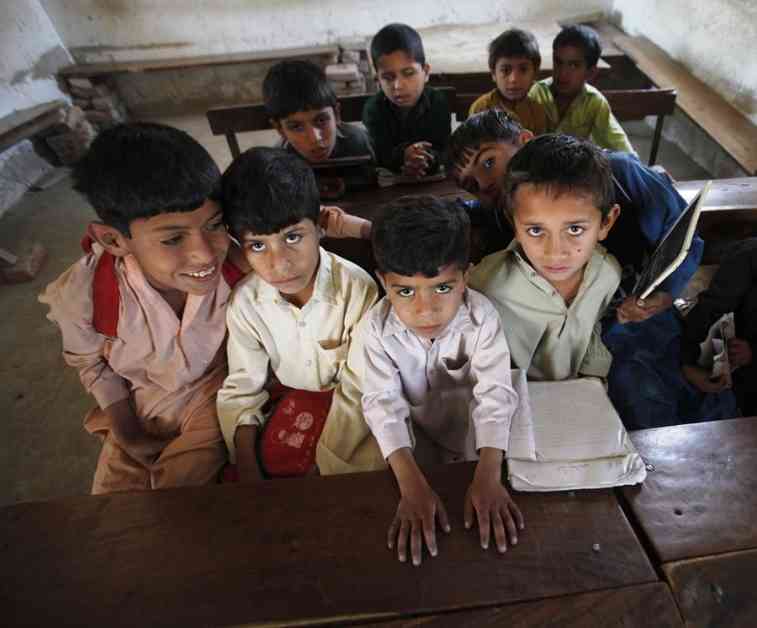**Climate Catastrophe: South Asia’s Struggle for Education**
In South Asia, the relentless impact of the climate crisis has transformed from a distant threat into a harsh reality reshaping landscapes and disrupting lives. The repercussions extend across various realms of human life, with education bearing a significant brunt.
**Unprecedented Disruptions**
A recent analysis by UNICEF revealed that in 2024, nearly half of the quarter-billion students globally who faced schooling disruptions due to climate-induced events were concentrated in South Asia. India, Bangladesh, Pakistan, and Afghanistan were among the most affected countries, with India alone accounting for 54.78 million children experiencing academic interruptions. The region’s education systems crumbled under the weight of intensifying heatwaves, becoming the primary reason for school closures worldwide.
**A Shared Crisis**
While South Asian nations battled natural disasters independently, the region faced a common crisis as extreme weather events ravaged communities. Heatwaves, floods, and storms left schools inaccessible, exacerbating the plight of millions of children already out of school. The lack of cooperation and regional action on climate change further weakened the region’s resilience, as highlighted by Hassan Akbar, a Pakistan Fellow at the Wilson Center.
**Policy Priorities**
Addressing climate change effectively necessitates policy consistency and adequate funding for long-term mitigation and adaptation programs. Political instability in countries like Pakistan has diverted attention from such pressing issues, hindering policy continuity. UNICEF emphasized the urgent need for governments to prioritize retrofitting schools to withstand extreme weather and integrating climate education into national curricula to equip students for future challenges.
**Data Deficiency**
One of the major hurdles in addressing climate-related disruptions in the region is the lack of data sharing, which impedes early warning systems and scientific research. Without robust data collection systems, policymakers struggle to understand and mitigate the impact of climate hazards on education, hindering effective responses to future crises.
**A Call to Action**
As South Asia grapples with the dual challenges of climate change and educational disruption, UNICEF’s global director of education and adolescent development, Pia Rebello Britto, emphasized the urgency of addressing both simultaneously. Despite the daunting outlook, solutions are within reach, provided they are swiftly implemented and scaled up.
In the face of escalating climate disasters and the looming threat to education in South Asia, collaborative efforts, data-driven policies, and proactive measures are essential to build resilience and ensure a brighter future for the region’s children.









